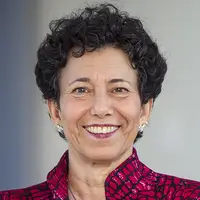In honor of Women’s History Month, Karen Davis, chief information officer for the Social, Statistical, and Environmental Sciences and vice president, research computing division at RTI, urges women leaders to be needed mentors.
For the past 19 years at RTI International, I have had the opportunity to work in an organization that lives its values of respecting individuals, and where there are many women in a variety of professions, all contributing to making a difference and delivering on the organization’s mission. I have been pleased and flattered to have the opportunity to mentor some junior women here.
I like to think that I can be a role model, and have helped pave the way for those who will come behind me. When I was starting out, there were no such role models for me. In the computing world where I am today, there are still a lot of improvements needed. Recently, Silicon Valley’s reputation lately has suffered greatly from media attention around sexual harassment and unequal treatment of women.
It’s clear that while a lot has changed, more change is still needed.
Early in my career, I was the only one—the woman in “a man’s job.” My first position was as an industrial engineer in a steel plant, at a time when there were few women who worked full time, women in engineering were rare, and women in manufacturing management roles were an anomaly. I worked in the manufacturing plant, not in the office building, but among the coke ovens, blast furnaces, ingot pits, and bloom rolling mills. It was about as industrial a setting as one can get. Every day, I wore a hard hat and other safety equipment. They had to order the equipment in boy’s sizes for me, because they didn’t have women’s safety equipment available at the time.
Working on the steel plant floor, I was often confronted by men who asked why I was there since “a man who is supporting his family could have your job.” I still wonder who they thought was supporting me!
As the steel industry declined, I moved to the automotive industry and encountered similar situations—being the first woman and only woman in a professional role at the company. I did not have a role model. I encountered discrimination and sexual harassment in a time when there were no laws prohibiting these things. In these challenging environments, I developed a thick skin. I focused on doing my job, learned everything I could, and then moved on when the next good opportunity presented itself.
And so it goes. As my career progressed, I expanded into the world of computing, and moved into organizations with more progressive views. Rarely, however, was there a woman there before me or a female leader or role model for me to follow. I was lucky that some of the men I worked with were willing to be mentors. They couldn’t relate to some of the workplace issues I faced, but they had extensive business experience they were willing to share and helped me grow. I’m grateful for those who did serve as mentors and guides, as they helped me to “pay that gift forward” now.
Today I am proud to be a leader in a computer career. I don’t have to define myself as a woman in my field, but I feel compelled to support women in any field they choose. As women, we must provide each other that invaluable support in fields not just limited to STEM.
I am so proud of the women I have mentored over the past 25 years—many of them have demonstrated great achievements in their careers and are now sharing that with others and paying it forward as well. As each of us grows in our careers, we should not only be looking forward to our own next exciting chapter, but determining how we can share that chapter with others. I encourage you to share your experience and wisdom and to support the next generations of professional women. When those women go forward to share their wisdom with others, the ripple effect could be world-changing.

